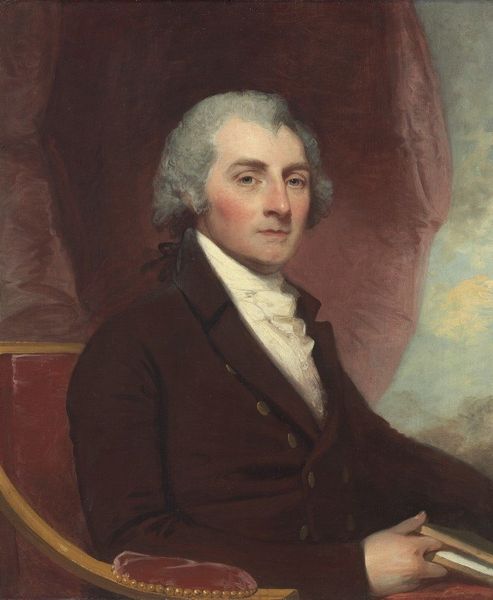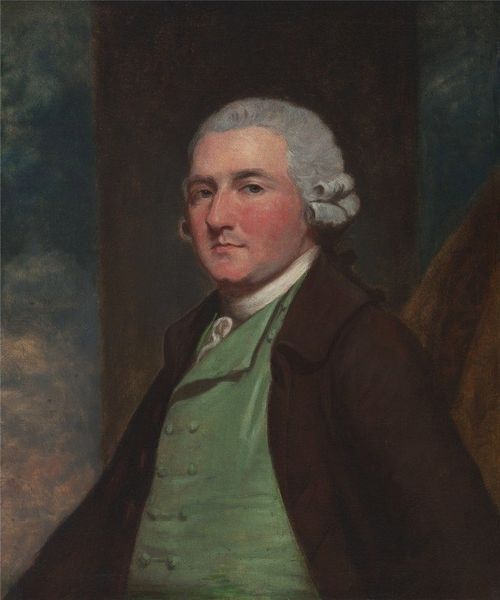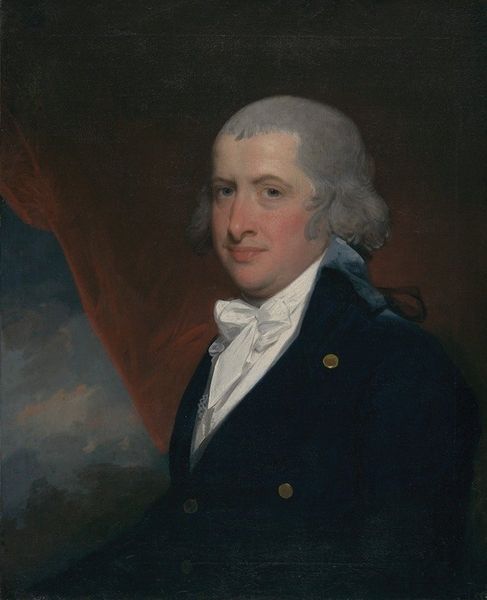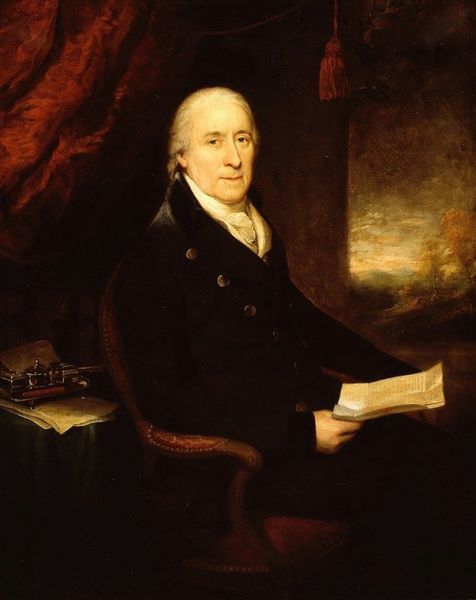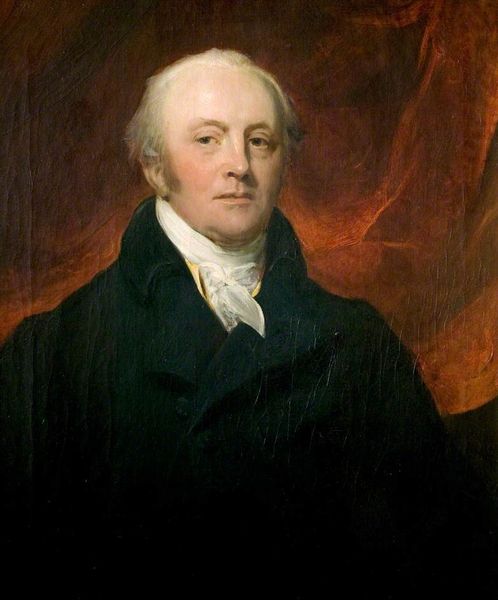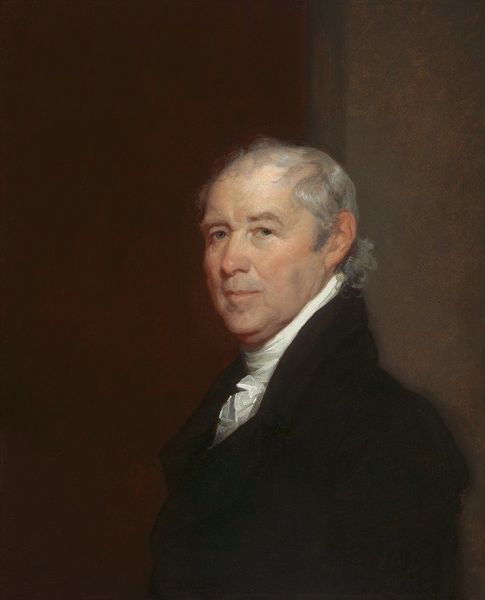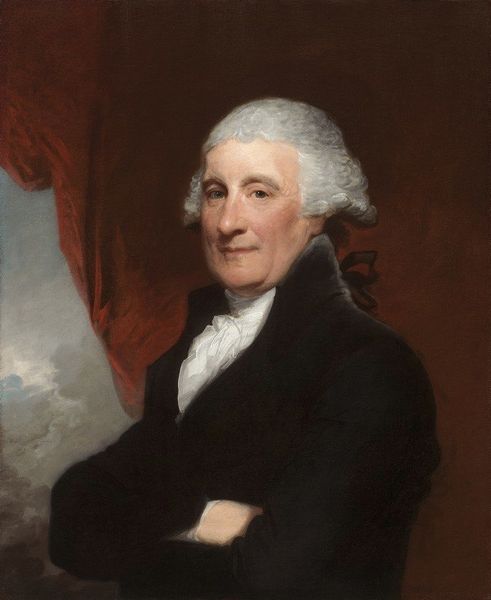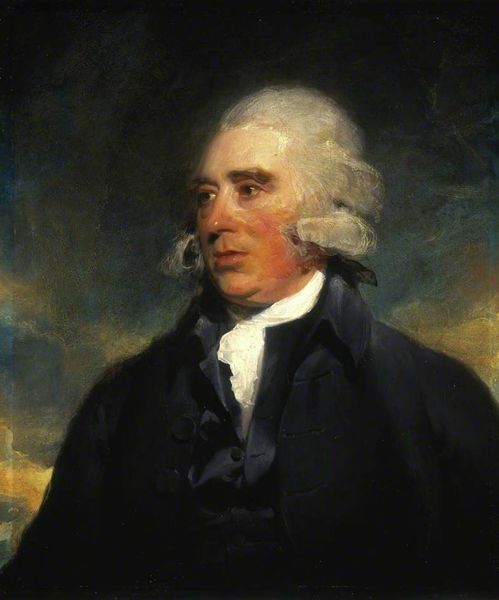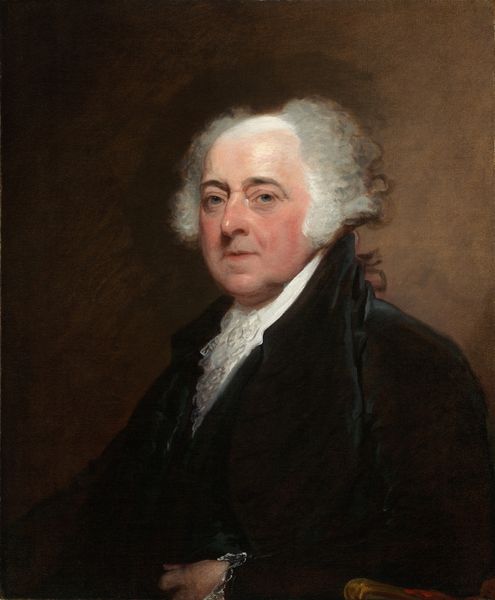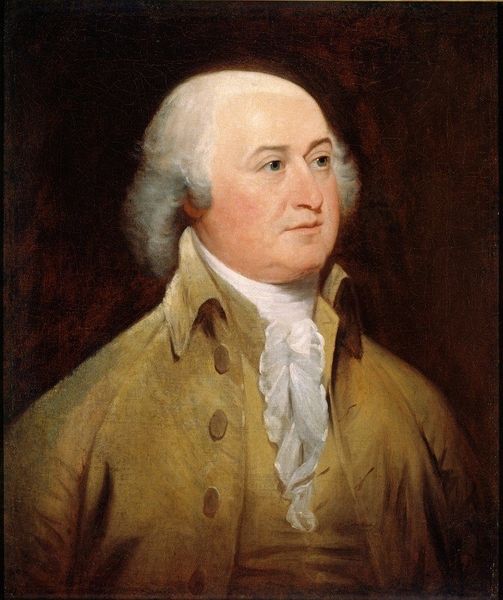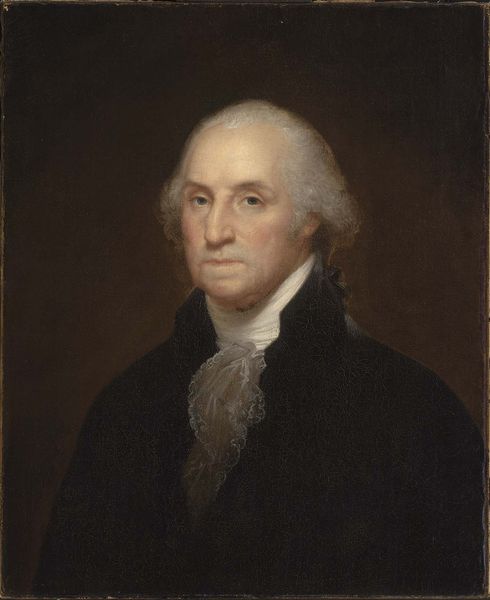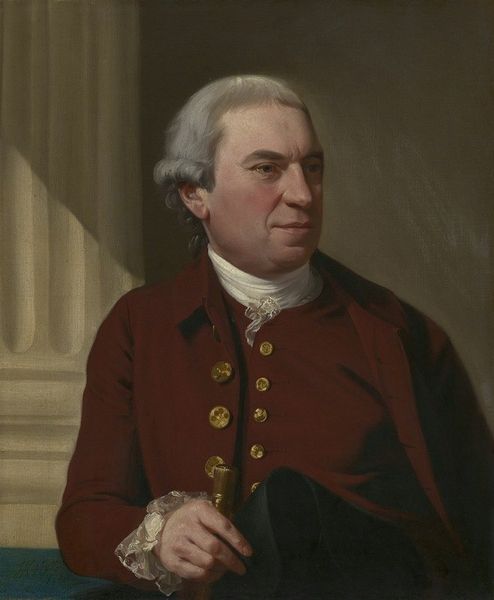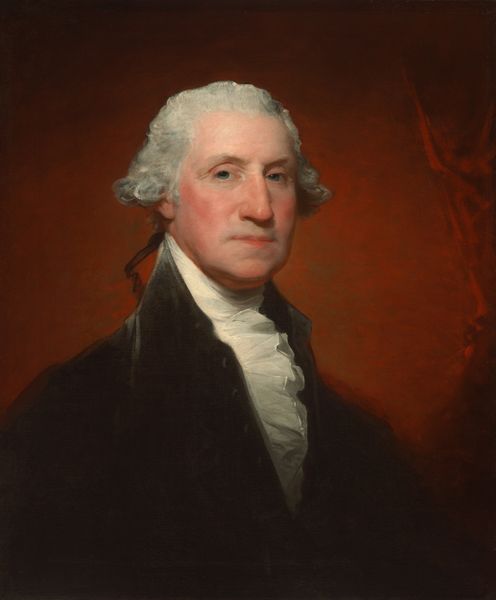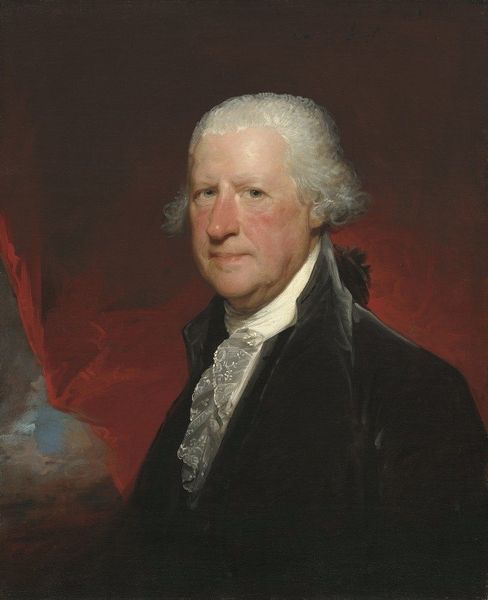
oil-paint
#
portrait
#
figurative
#
neoclacissism
#
oil-paint
#
portrait reference
#
portrait head and shoulder
#
animal portrait
#
animal drawing portrait
#
portrait drawing
#
facial study
#
history-painting
#
facial portrait
#
portrait art
#
fine art portrait
#
digital portrait
Copyright: Public Domain: Artvee
Gilbert Stuart painted this portrait of Wilson Cary Nicholas, an American politician, sometime in the late 18th or early 19th century. The portrait is interesting not just as a record of Nicholas's appearance, but as a symbol of power and status in the early American republic. Consider the trappings of wealth and respectability: the fine clothing, the dignified pose, the confident gaze. These visual cues speak to the social hierarchy of the time, where access to portraiture was often limited to the elite. Stuart was one of the most sought-after portrait painters of his day, and being painted by him was a sign of arrival in the upper echelons of society. To truly understand this painting, we need to consider the social and political context in which it was made. Archival research into the Nicholas family and Stuart's career, combined with an understanding of the prevailing artistic conventions, can shed light on the complex interplay between art, power, and identity in early America.
Comments
No comments
Be the first to comment and join the conversation on the ultimate creative platform.
